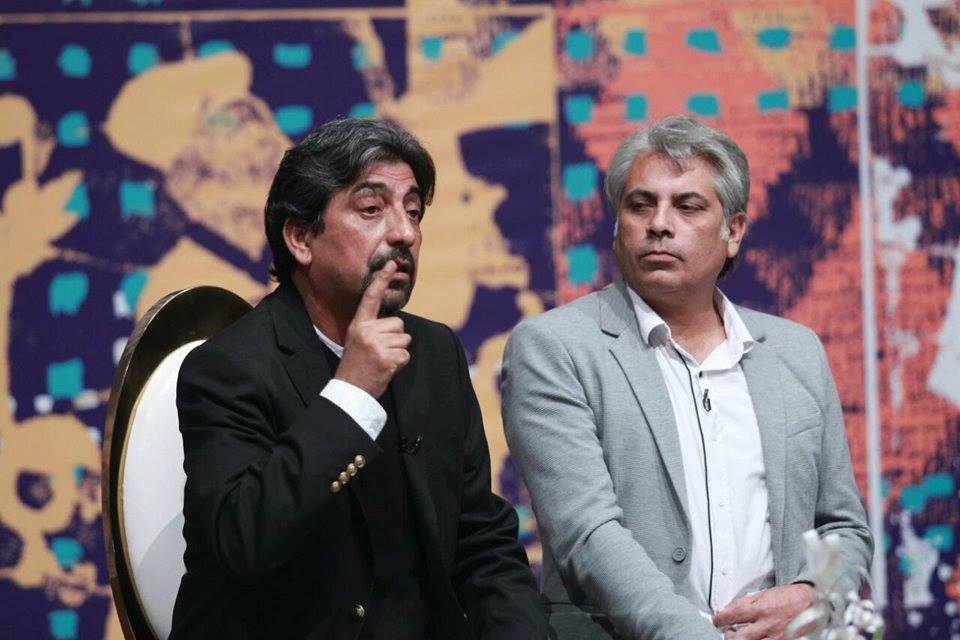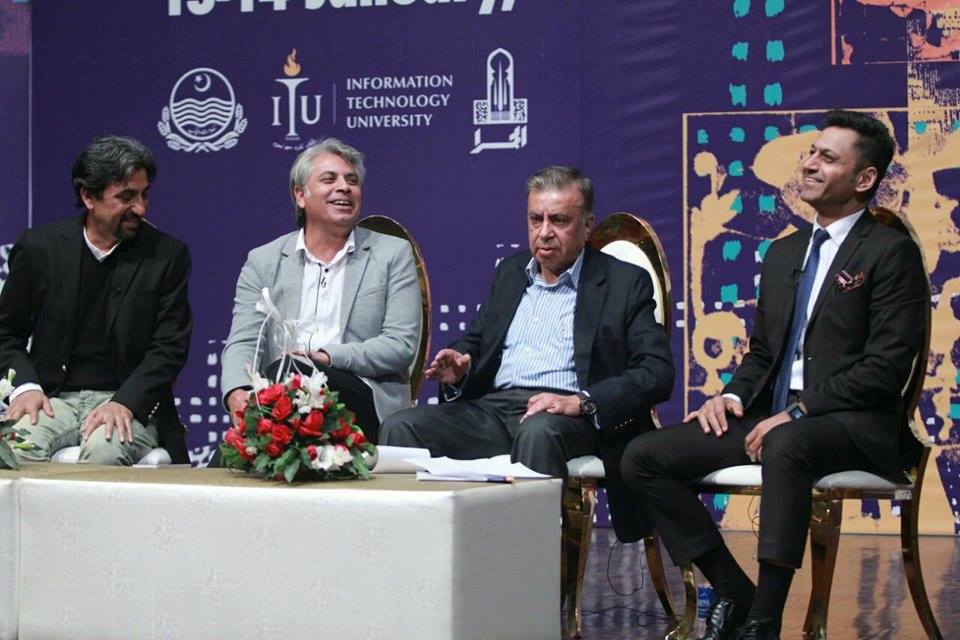'Where is our media headed': Journalists have their say

In a very vibrant discussion held recently at Afkar-e-Taza Think Fest, a panel of well-seasoned journalists discussed how media in Pakistan had evolved over the past few decades. Photo: Shafiq Malik
Pakistani media has seen some remarkable changes over the past decade. Whether it is print or television, media has played one of the vital roles in the society, especially in an ever evolving society like Pakistan. And in the process, it has come a long way to point where we see the impact of media and reporting playing a role in shaping how we look at our society.
In a very vibrant discussion held recently at Afkar-e-Taza Think Fest, a panel of well-seasoned journalists discussed how media in Pakistan had evolved over the past few decades, where it currently stood to where it now is headed.
Moderated by senior print and broadcast journalist Fahd Husain, the panel consisted of three well known Pakistani journalists Owais Tohid, Arif Nizami and Mubashir Zaidi.
Moderator Fahd Husain questioned the panel on the relation between media and citizens, and whether people trust the news they watch and read.
Answering this, Nizami – one of the most senior journalists in Pakistan, said that media has rapidly evolved over time with social media being one of the most important aspects of news, where you are updated from time to time. “It was not the same in the past, especially when it came to the print media, where changing news could cost a lot.”

Owais Tohid and Mubashir Zaidi during their panel discussion on where the media of Pakistan is heading. Photo: Shafiq Malik
But Nizami also stated that with time news has become something that is all about sensationalism rather than serious journalism, with greater focus being on ratings, making the relation between news and citizens weak.
Mubashir Zaidi echoed the same view. “When I started working 27 years ago journalists were poor but journalism was richer. Today it’s the other way round where you see decline in journalism,” he said.
“Now we have been told the red lines, where we need to write and what we are not supposed to.”
Furthermore, Zaidi stated that the impact of talking about a political party means that if it doesn’t resonate well with a specific group, the entire supporting system will shun the channel from advertisements. “And owners of news channels take matters of advertisements very seriously.”
“It has become more about how well you can make a business out of it. We (journalists) have turned into a ‘deyhari wala mazdoor’ – a daily wage worker,” he said.
Zaidi elaborated on the concept and need of an editor in media organisations, whether print, digital or broadcast. “It is very rare to see editors now,” he said.
“Sadly now you are directly exposed to the owners, now they direct you what to write and what not to write because adverts depends on the type of news you write.”
Zaidi blamed journalists for allowing that space in journalism to be encroached by owners.
Husain questioned the direction media had undertaken, and if entertainment was where television was headed, how wrong was it for journalists working in the same medium to give in to the requirements of the same.

Moderator of the discussion Fahd Husian with Arif Nizami, Mubashir Zaidi and Owais Tohid. Photo: Shafiq Malik
“We have lost seriousness from journalism,” said renowned journalist Owais Tohid. Citing the recent incident in Kasur involving the rape and murder of the young girl Zainab, he said news reports over the horrific incident included sad songs in the background and some went as far as editing screams of little girls.
“This is unprofessional.”
Adding to this Arif Nizami agreed and said that for the sake of ratings news channels have stopped taking news as news.
Walking down memory lane, Tohid said that back in 2002 when many privatized news channels emerged, there was a huge shift of the ownership from state to “seth”. “In the beginning news channels had no madness of aiming towards more and more ratings. But gradually it became more about ratings than news.”
Tohid also said that it was the flawed system of ratings lacked research to understand what viewers want. “How is it possible to leave the decision of more than 200 million Pakistanis into the hands of a few people?”
Zaidi spoke on the importance of unbiased news. He said that journalists have to provide unbiased news to the best of their knowledge and judgement. “This is what is absent in Pakistan right now.”
Nizami said that media reflected the type of society we lived in. But there is hope, he believed. “With time we have shifted from being conservative to openly talking about social issues,” he said citing the coverage of Kasur murder and the global ‘Me Too’ campaign.
While the panel agreed that print media was still much better than television, which often sees bias journalism, it also stressed on the need to remain hopeful of the outcomes of a media that has, over the past many years, witnessed challenging times in a socially and politically evolving country.


